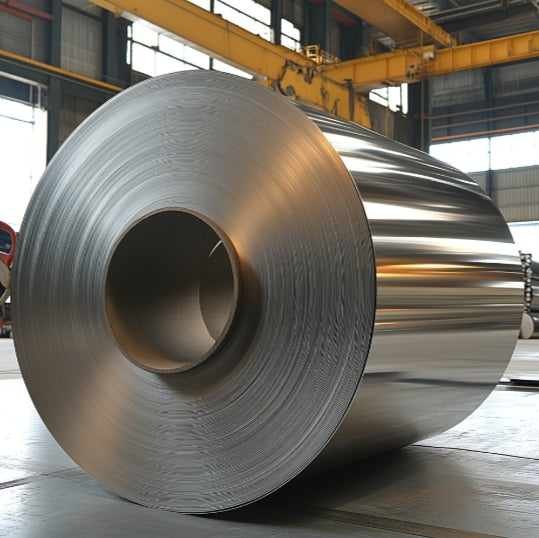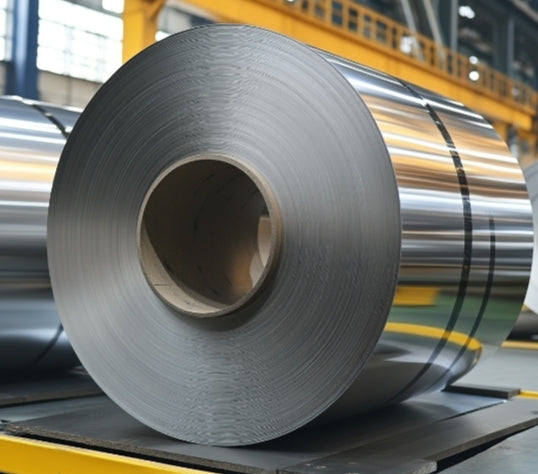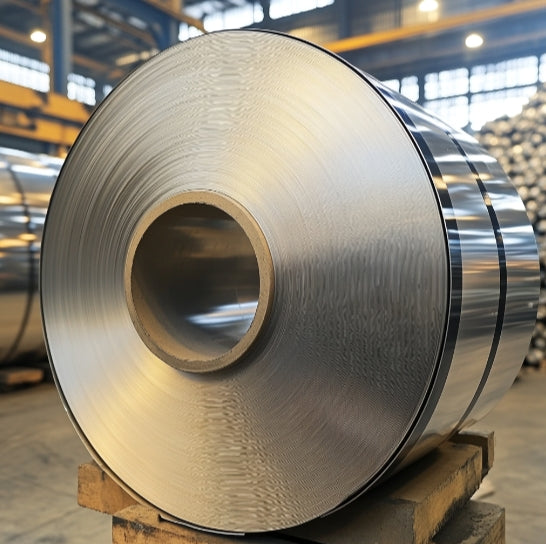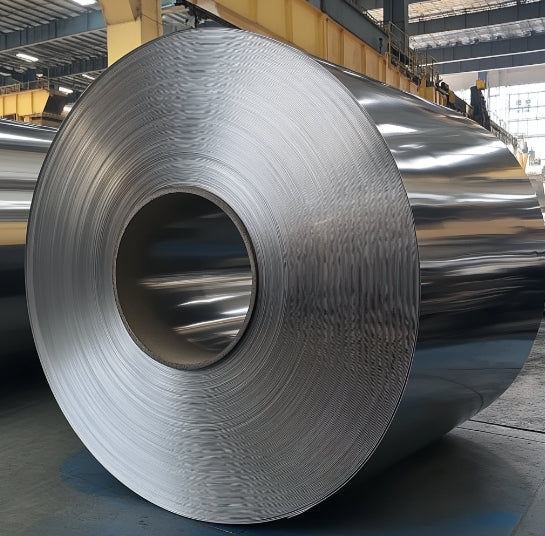StockSteel
Reliable Stainless Steel Coil Siding Nails – Half-Hard Strength
Reliable Stainless Steel Coil Siding Nails – Half-Hard Strength
Couldn't load pickup availability
Reliable Stainless Steel Coil Siding Nails – Half-Hard Strength
Technical Specifications
Material Grades & Mechanical Properties
| Grade | Tensile Strength (MPa) | Yield Strength (MPa) | Hardness (HRC) | Shank Type | Collation Angle | Coil Capacity (pcs) |
|---|---|---|---|---|---|---|
| 410 | 520–750 | ≥345 | 35–45 | Smooth | 15° | 2000–3000 |
| 420 | 650–950 | ≥450 | 40–52 | Ring | 15° | 1500–2500 |
| 430 | 450–600 | ≥310 | 30–40 | Spiral | 34° | 125–400 |
Dimensions & Processing
| Diameter (mm) | Length (mm) | Collation Material | Surface Finish | Key Applications |
|---|---|---|---|---|
| 2.0–3.5 | 25–90 | Copper/Wire | Martensitic stainless steel coil (galvanized, vinyl-coated) | Applications of stainless steel coils in roofing, HVAC, and structural cladding |
| Tolerance: ±0.05mm | Edge Type: Slit/Mill | Processing: Cold Rolled & Heat-Treated |
Extended Technical Insights
Tensile & Bending Strength
Half-hard 410/420 grades achieve tensile strengths up to 950 MPa, optimized for high-stress applications like securing metal siding to wooden frames. The martensitic stainless steel coil structure enhances resistance to deformation under load, critical for roofing and industrial HVAC systems. Cold-rolled processing ensures uniform grain flow, while heat treatment (quenching at 980–1050°C) stabilizes hardness and ductility balance.
For rewinding stainless steel coils, precision slitting (0.2–6mm tolerance) guarantees consistent nail alignment, reducing jamming risks in pneumatic tools.
Identification & Weight Calculation
- Chemical Marking: Laser-etched labels (e.g., "ASTM A666") on collation wires for traceability.
- Weight Formula:
- Single Nail Weight (g) = (π × (D/2)² × L × Density) / 1000
- Density: 7.75 g/cm³ (martensitic grades), 7.93 g/cm³ (austenitic grades).
Example: A 3.0mm × 50mm nail weighs ≈ 2.78g, with 2000 pcs/coil ≈ 5.56kg.
Why Stainless Steel Rusts – Causes & Prevention
While martensitic stainless steel coil nails resist corrosion better than carbon steel, rust can occur under:
- Chloride Exposure: Coastal environments degrade passive chromium oxide layers. Grade 430 is prone to pitting vs. 410/420’s superior chloride resistance.
- Galvanic Corrosion: Contact with dissimilar metals (e.g., aluminum) accelerates oxidation. Insulate with nylon washers or vinyl coatings.
- Mechanical Damage: Scratches from improper handling expose raw steel. Use nylon-tipped tools during installation.
- Low Chromium Content: Grades below 12% Cr (e.g., 201) lack sufficient passivation. Our nails use 16–18% Cr for enhanced durability.
Applications of Stainless Steel Coils
- Roofing & Siding: Rewinding stainless steel coils into collated nails (15°–34°) for rapid installation of metal sheets.
- HVAC Systems: Martensitic stainless steel coil components in heat exchangers, combining thermal stability (up to 800°C) with crevice corrosion resistance.
- Structural Engineering: High-strength nails for securing steel beams, pallets, and industrial containers.
Why Choose Our Stainless Steel Coil Siding Nails?
- Certified Durability: Compliant with ASTM A666, ISO 3506, and EN 10088-3 standards. Third-party SGS reports available.
- Custom Solutions: Tailored collation angles (15°, 34°), lengths (25–90mm), and surface finishes (galvanized, PVD-coated).
- Rapid Production: 60+ rewinding stainless steel coils processed daily via 0.2–6mm slitting machines (±0.02mm precision).
- Corrosion Guarantee: 10-year warranty against rust under standard environmental conditions.
- Sustainable Manufacturing: 100% recyclable materials, reducing carbon footprint by 30% vs. conventional steel.







